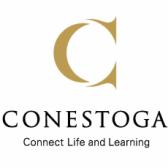Informing the Creation of Educational Indicators

Summary
In 2018, Conestoga College was awarded RNAO funding to achieve BPSO status by integrating best practice guidelines (BPGs) directly into nursing curricula. Also, within the School of Health and Life Sciences at Conestoga College, including more gerontological content in nursing program curricula is a priority. Many of the BPGs directly relate to seniors’ care including falls, dementia and pain management, etc.; and so, the School has made considerable effort to reference and incorporate practice recommendations into curricula. In health care settings, INQUIRE indicators have been established to evaluate change related to implementation of BPGs. However, there are no indicators available to evaluate implementation of BPGs in nursing curricula. The purpose of this project was to develop student gerontological learning objectives to facilitate and evaluate enriched course and program curricula. The potential uses of the learning objectives are (1) to offer increased opportunities for gerontological content to be incorporated along with foundational course curriculum (i.e., simplified curriculum mapping), and (2) to evaluate strengths and weaknesses in curricula.
The overall goal of this project was to understand Canadian gerontological nurse competencies and, through consulting with experts via the Delphi process, lead a project to develop student learning objectives based on the competencies. Some of the non-specific skills I have developed as part of this project are problem solving, listening to others and responding positively to feedback, project management, communication, leadership, and professionalism. Some disciplinary skills I have developed as part of this project are communicating with experts and stakeholders, conducting literature reviews, conducting surveys, qualitative analysis, academic writing, and public speaking. New knowledge I have gained include familiarity with Canadian Gerontological Nurses Association Standards of Practice and Competencies, RNAO best practice guidelines, and the administrative processes for designing curricula and how curricula is delivered and evaluated. Through the skills and learning I have developed as part of this Fellowship, I aim to assist in championing organizational change in gerontological opportunities for student learning at the College and collaborate with the new contacts I have made across Canada who are eager to collaborate in similar initiatives across their workplaces (including clinical, academic and research settings). Additionally, this learning will assist me in my role as a Nurse Research Project Manager to develop and evaluate innovative educational interventions at the College.
Outcomes
Outcomes:
Short-term outcomes that were achieved include increased knowledge and skills among RNAO BPGs and that I have been able to act as a resource/consultant among my colleagues at Conestoga; long-term outcomes that are in the process of being achieved include publishing of a manuscript listing the learning objectives so that others can share in implementing them to support nursing curriculum and eventually graduating students with a stronger foundation of gerontological learning.
I have shared the learning objectives as part of a World Cafe open to the faculty and administrators at the School of Health and Life Sciences at Conestoga. I will also be presenting as part of a Conestoga internal conference aimed at providing continuing education. As part of these presentations, I have discussed how the learning objectives can be implemented and how they can be used to address gaps in BPG and gerontological content. These learning objectives can be used to evaluate curricula to identify areas of improvement and strengths. As part of the research office, I will assist the college in creating additional resources based on the needs of the faculty and staff here.
Overall experience
I really enjoyed consulting with experts as part of the Delphi process. Specifically, I really enjoyed learning about some of the needs they have identified from their experiences as clinicians and/or teachers. It was a privilege to connect with people across Canada and listen to what they have found works and doesn’t work. It was a rare insight into the skills and dedication of gerontological nurse experts.
